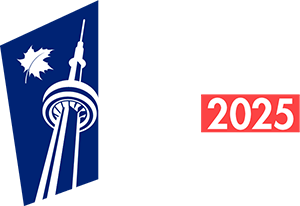Exemption for Seniors and Persons with a Disability
If you own a property that houses a senior (age 65 or older) or a person with a disability, you may be eligible for a tax exemption for a portion of your property. This applies whether the property is owned by the senior (age 65 or older), or a person with a disability, or someone else.
Purpose of applying for the tax exemption
You can apply for a property tax exemption for residential units that are built or altered to accommodate a senior (age 65 or older) or a person with a disability.
Who this information is for
This information is for owners of:
- Residential homes that have been renovated or modified to accommodate a senior (age 65 or older) or a person with a disability.
- Custom-built residential homes constructed to accommodate a senior (age 65 or older) or a person with a disability.
- Garden suites, as defined in the Planning Act.
Criteria
Existing residential units
You may qualify for a tax exemption for renovations to your existing residential home under the following circumstances:
- You have made the renovations to accommodate a senior (age 65 or older) or a person with a disability, and that unit has seen an increase in value as a result of the changes.
- These changes must have been made after May 15, 1984.
- The home improvements that qualify include any addition, improvement or changes that specifically relate to the needs of the senior (age 65 or older) or person with a disability living in the home.
- The changes may include such things as bathroom alterations, kitchen alterations or additions to your existing home.
- The senior (age 65 or older) or person with a disability must live in the home as their personal residence.
- The senior (age 65 or older) or person with a disability would have to live elsewhere, with on-site care, if improvements were not made to the property to accommodate their needs.
- The property is in the residential property class (this will be indicated on your Property Assessment Notice) and does not have more than three residential units.
- The person occupying the property where the senior (age 65 or older) or person with a disability resides is not in the business of offering care to seniors (age 65 or older) or persons with a disability.
- You apply to MPAC for the property tax exemption.
Only the assessed value of the alterations, improvements or additions constructed for the purpose of providing accommodation to a senior (age 65 or older) or a person with a disability is exempt from property taxation. Approved exemptions remain in place as long as the senior or person with a disability resides in the premises as their personal residence.
Example:
- MPAC assesses the value of the property before the alteration, improvement or addition.
- We assess the value after the alteration, improvement or addition.
- The dollar difference between the two assessments is the amount that is exempt from taxes.
- The exempt portion is added to the assessment for the next taxation year and no taxes are charged against it.
So, if the previous value was $185,000 and the value after the alteration, improvement or addition is $200,000:
- The exempt portion = $15,000
- The taxable portion = $185,000
Custom-built residential property
You may qualify for a property tax exemption of up to 10% on a custom-built residential home under the following circumstances:
- The custom-built home was built to provide accommodation for a senior (age 65 or older) or person with a disability.
- The senior (age 65 or older) or person with a disability would have to live elsewhere with on-site care if you did not build the unit.
- The senior (age 65 or older) or person with a disability resides in the home as their personal residence.
- The property is in the residential property class (this will be indicated on your Property Assessment Notice) and does not have more than three residential units.
- The person occupying the property where the senior (age 65 or older) or person with a disability resides is not in the business of offering care to seniors or people with a disability.
- You apply to MPAC for the property tax exemption.
If there are additional buildings on the property, discretion will be used to determine whether or not the additional buildings are being used to help accommodate for the senior (age 65 or older) or person with a disability. If we decide they are not, we will not include those buildings in the calculation for the exemption.
For properties with large acreage, the 10% exemption only applies to the residential building plus one acre of land.
This exemption recognizes that custom features to accommodate a senior (age 65 or older) or a person with a disability may require a larger floor area than would otherwise be included. The partial exemption—up to 10% of the new home—takes into account this additional floor area as well as modifications such as wider doorways, wider hallways, etc.
Examples:
Example 1:
- Total assessment = $200,000
- Assessment of 1 acre plus house and garage = $160,000
- Exempt portion: 10% of $160,000 = $16,000
- Taxable portion = $184,000
- Exempt portion = $16,000
Example 2:
- Property includes 10 acres of land with a house, attached garage and 1,000 square feet of storage shed.
- Only one acre of land, the house and garage are used to provide a home for a senior (age 65 or older) or person with a disability.
- The shed and nine acres of land are not used for residential purposes, so they are not included in the calculation.
Garden suite
You may qualify for a tax exemption for your garden suite under the following circumstances:
- The garden suite is used as the personal residence of a senior (age 65 or older).
- The garden suite is a one-unit detached residential structure containing bathroom and kitchen facilities.
- You have your personal residence on the land.
- You are a family member of the senior (age 65 or older).
- The garden suite is ancillary to your existing residential structure.
- A by-law or order under the Planning Act provides that the use of the garden suite is temporary and designed to be portable.
The assessed value of the temporary structure may be exempt as long as the senior (age 65 or older) resides in it as their personal residence.
Example:
If the previous value was $185,000 and the value after the addition of the garden suite is $200,000:
- The exempt portion (value of garden suite) = $15,000
- The taxable portion = $185,000
Benefits of the property tax exemption
If you qualify for the tax exemption, a portion of your property will be exempt from taxation, and you will pay less in property taxes overall.
Your role in the process
You must notify us of the change to the property or use of it.
The process of applying for the property tax exemption
The following are the steps to qualify for, and maintain, a tax exemption for accommodating a senior (age 65 or older) or person with a disability:
- Inform MPAC.
- You will need to tell us that you have built or modified a unit for a senior (age 65 or older) or person with a disability, or installed a garden suite for a senior (age 65 or older).
- You will be asked to provide details demonstrating that the improvement or modification of the unit was necessary to accommodate a person who would otherwise need to live in a facility with on-site care.
- We will review the exemption details.
- We will verify that your data is current and will inspect your property to determine whether your property qualifies for the exemption.
- Affirm that you qualify.
- We will provide an affidavit that you must complete to affirm that your property meets all of the legislated requirements for the exemption.
- We will add your exempt portion to the assessment roll.
- We will add your exempt portion for the next tax year, and no taxes will be charged against it.
- We will send you a confirmation letter with a postage-paid return envelope.
- Our letter will ask you to confirm your property is eligible for the tax exempt portion in your assessment.
- We will remove the tax exemption if you do not respond to the letter, or if the senior or person with a disability no longer resides on your property.
- A letter will be sent out by MPAC, every two years, to confirm that the senior (age 65 or older) or person with a disability is still using the unit.
- Our letter will ask you to confirm your property is eligible for the tax exempt portion in your assessment.
- You must respond to the letter by the due date indicated in your letter.
- Your next Property Assessment Notice will show both the taxable assessment and the part that is exempt from taxation.
- If your unit was assessed as entirely taxable for the current or prior taxation years, and you are now applying for the exemption, you should contact your municipality to see if you qualify for a tax rebate for the current taxation year.
How to start the process
If you believe your property is eligible, please contact us and provide us with as much detail as possible to meet the criteria described above.
Relevant forms and links
Section 3(1)22 and 3(1)22.1 of the Assessment Act and section 45.2 of Ontario Regulation 282/98 provide a tax exemption for a portion of a residential property where a senior or a person with a disability resides.




